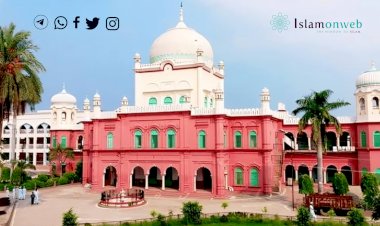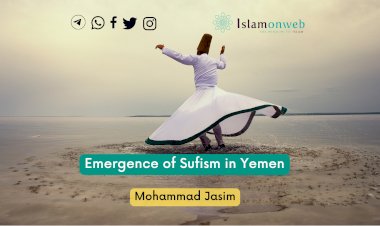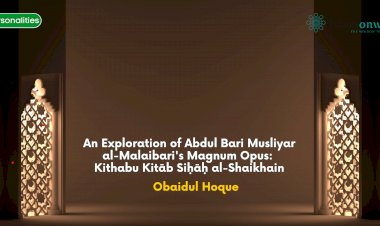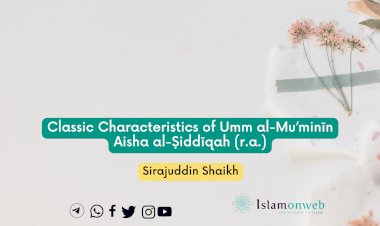Imam Aḥmad Raza al-Qadri: The Islamic Polymath of 14th Century A.H.
Introduction
Imam Aḥmad Raza Khān (1856-1921), popularly known as Aʿla Ḥazrat, was a versatile scholar, jurist, muftī, philosopher, theologian, ascetic, Ṣūfī, poet, and Mujaddid in British India. He was proficient in half a dozen languages and wrote on law, religion, philosophy, and other sciences. Because he mastered many subjects in both rational and religious sciences, Francis Robinson, one of the leading Western scholars of South Asian Islam, considers him a polymath.[1]
The Polymath
Aʿla Ḥazrat was a seasoned jurist. He had vast knowledge of Ḥadīth and related sciences. Among Ḥadīth works, Imam Aḥmad wrote a huge amount on inference from Ḥadīth, Fiqh al-Ḥadīth , Usul al-Ḥadīth and the biographies of the narrators (‘Asma’ al-Rijal’).
To name a few of his works, I shall first and foremost mention his excellent treatise on the science of takhrīj entitled, ‘ar-Rawdh al-Bahīj fi Adab al-Takhrīj’ (1219h). Aʿla Ḥazrat Imam Aḥmad Raza (may Allah’s mercy be upon him) was a great philosopher and scientist. He was well-versed in philosophy and science, better than anyone in his time. He was a master of ancient and modern sciences. He proved through research that various concepts of modern-day science are implausible and against the commandments of the Holy Qur’ān and the Ḥadīth.
Aʿla Ḥazrat wrote many books on science and physics. One of his famous books, ‘Fauz-i-Mubīn dar radd-i-Ḥarkat-i-Zamīn’, using the Holy Qur’ān as its guidelines, proves that the earth is not rotating but stationary.[2] He also proves that the entire Universe revolves around the earth. Modern theories believe that the earth rotates on its axis and that all the planets, including the earth, revolve around the sun. He declared that: “The Islamic principle is that the sky and earth are stationary, and the planets rotate. It is the sun that moves around the earth; it is not earth that moves around the sun.”[3] Imam Aḥmad Razā Khān also challenged the theories of scientists such as Galileo Galilei and Sir Isaac Newton.
The Statesman
Imam Aḥmad Raza was a Sunni Ṣūfī scholar and reformer in north India who wrote extensively to uphold the honour of Prophet Muhammad (ﷺ) and popular Ṣūfī practices. He was unanimously quoted as the leader or ‘Imam’ of ‘Ahlus Sunnah’ in his time. He influenced millions of people. Today, the movement consists of around 200 million in the region.
In his view, political alliances forged at the time with non-Muslims to overthrow the British were misplaced. However, the Imam was against the Khilafat movement for Sharia reasons. The non-cooperation movement that was incorporated in 1920 by giving up British honours to boycott British courts and schools and non-payment of taxes was like that followed by Imam Aḥmad Raza Khān. This signifies that Aʿla Ḥazrat’s political view had a focus on religious stabilization and development of its citizens rather than on a cause of hidden agendas.
Imam Aḥmad Raza Khān declared that India was Dar al-Islam and that Muslims enjoyed religious freedom. According to him, those arguing the contrary merely wanted to take advantage of the provisions allowing Muslims living under the non-Muslim rule to collect interest from commercial transactions and had no desire to fight Jihad or perform Hijra. Therefore, he opposed labelling British India as Dar al-Harb ("abode of war"), which meant waging holy war against and migrating from India were inadmissible as they would cause disaster to the community. The Muslim League mobilised the Muslim masses to campaign for Pakistan. Many of Khān's followers played a significant and active role in the Pakistan Movement on educational and political fronts.
Literature
Ala Ḥadrat’s enormous contribution to literature teaches the essence of and gives every Muslim a taste of literature. He was a poet and used to write in Arabic, Persian and Urdu. The contributions of Ala Ḥadrat in each area of his knowledge are as follows: Tafsir, Tajwid and Qur’ān Sciences (21 books). Áqidah, Kalam, Criticism, Polemics (131 books). Ḥadīth , Usul Ḥadīth (59 books). Fiqh, Usul Fiqh, Terminology of Fiqh, Inheritance (266 books). Tasawwuf, Adhkar, Dream Interpretation, Morals (60 books). History, Biographies, Eulogies (37 books), Literature, grammar, lexicology, prosody (7 books), numerology, fractions, calculations of Prayer Times (44 books), Algebra, trigonometry, arithmetic, logarithms, geometry (17 books), Astronomy, astrometry (27 books), Logic, philosophy, and miscellaneous: 10 books, Total: 679 Books (and many others which remain unpublished). Abdul Mubin Numani mentioned in his book Musannafāt-e-Radawiyya.
He wrote Na'at (devotional poetry) praising Prophet Muhammad (ﷺ) and wrote about him with the utmost respect. His Urdu poetry collection is called “Hadaiq-e-Bakhshish” (Gardens of Salvation). His poems, which deal for the most part with the qualities of Muhammad, often have a simplicity and directness. His Urdu ballad, entitled “Qaseeda e Salamiyah” which starts with the verse “Mustafa Jaane Rahmat Pe Lakhon Salaam” (Millions of Salutations on Mustafa, The Paragon of Mercy), are recited in mosques globally. They contain praise of Muhammad (ﷺ), his physical appearance (verses 33 to 80), his life and times, praise of his family and companions, praise of the Awliya and Swaliheen (the saints and the pious).
One of the most famous works of Imam Aḥmad Raza is the apt Urdu translation of the Holy Qur’an called “Kanzul Iman fi tarjamatil Qur’an” (The Treasure of Faith). It is a translation from Arabic to Urdu which has been further translated to many languages like Hindi, English, Dutch and Turkish. It is often accompanied by the concise exegesis called “Khazain-al-Ifran fi tafsir-al-Qur’an.” Which has been written by his close companion Syed Naeem Uddin Moradabadi.
Contributions
The religious institution “Manzar e Islam” and the welfare organization “Jamat Raza-e-Mustafa” that was established in the year 1904 and 1917 by Imam Aḥmad Raza Khān are currently operational with the aim and objective of delivering affordable and true Islamic education for the masses. Even though the institutions faced financial drawbacks in initial phases, they performed well in creating the best brains of the country by setting an example for Muslims on the educational front. These institutions symbolise the establishment and development of Muslim society, carving skilful individuals, creating efficient teachers and tlivinglife with dignity and morality.
Fiqh (Islamic Jurisprudence)
Ḥussām al-Haramayn Ala Manhir kufri wal mayn (The Sword of the Two Sanctuaries at the throat of unbelief and falsehood) 1906, is a treatise which declared the founders of the Deobandi, Wahhabi and Aḥmadiyya movements as infidels based on not having the proper veneration of Muhammad and finality of prophet-hood in their beliefs. In defence of this verdict, the Imam travelled to the lands of Arabia and obtained confirmatory signatures from some 30+ scholars in Mecca and Medina. Moreover, his student Hashmat Ali Khan travelled the Indian sub-continent to get 268 scholars in South Asia to sign off on the same. The treatise is published in Arabic, Urdu, English, Turkish and Hindi.
Fatawa-e-Razvia or Al A’taya al-Nabawiyyah fi Fatwa al-Razaviyyah (translates to The blessings of the prophet in the Razavi verdicts) is the main fatawa (collection of Islamic verdicts) written by him. It has been published in 30 volumes and approximately 22,000 pages. It contains verdicts pertaining to daily-in-life problems from religion to business and from war to marriage.
In 1905, Khān, on the request of contemporaries from Hejaz, wrote a verdict on the permissibility of using paper as a form of currency in one sitting, entitled Kifl Al-Fiqih Al-Fahim Fi Ahkam Al-Qirtas Al-Darahim (1324).
Conclusion
While reading Aʿla Ḥazrat’s books and dealing with his biography, it becomes clear that Allah the Almighty bestowed him with immense knowledge and wisdom, and Aʿla Ḥazrat spent his whole life in the service of Islam. Moreover, the Almighty gave him not only knowledge of religion but also knowledge of the modern sciences. As people called him scholar, mufti, and muhaddith, he was also an expert in science, geography, astronomy, mathematics and many more.
With the demise of such a great personality the Muslim world lost an iconic scholar. The world will remember him forever as a literary and scholarly giant. Arab Scholars like Shaykh Ismail bin Khalīl and Shaykh Musa Alī Shamī proclaimed Imam Aḥmad Raza Khān (Alaihir Rahmah) as the Reviver of the 14th Century A.H. with the words “It is right to call him the revivalist of this century”.
No tribute to Imam Aḥmad Raza (Radi Allahu Anhu) could be complete without acknowledging the continued efforts of the Imam in providing true leadership throughout his life, he led the Muslims in a fragile moment in the history of Islam in the Indo-Pak sub-continent. At a time when the continued emergence of deviant sects like the Ahmadiyya and others proved to be a source of fitnah for the Muslim world, Imam Aḥmad Raza (Radi Allahu Anhu) came forth to defend the true Islamic principles as a scholarly giant, and in doing so, also succeeded in securing a place in the Urdu language as a literary giant in Na’tia Kalam as well.
References
Haroon, Muhammad. (1994). The World Importance of Imam Ahmed Raza Khan Barelvi. Stockport, UK: Raza Academy. ISBN 9781873204122
Maulana Zafaruddin Qadri, HAYAT-E-AALA HAZRAT, PAIGHAM-E-RAZA (The World Islamic Movements), 2003
Noori, M. A. (2010). Imam Aḥmad Reza his Academic And Spiritual Services. Durban, South Africa: Imam Mustafa Reza Research Center.
Qadiri, M. I. (2017). A brief Biography of Imam Aḥmad Reza Khān. Karachi: Maktabatul Madinah.
Siddiqui, P. M. (1988). Economic Guidelines for Muslims. Saddar Karachi: Idar I Tahqeeqath E Imam Aḥmad Reza Internationl.
Shaheen Alī S B, A study on Imam Aḥmad Reza Khān Barelwi’s life and teachings for Muslims reforms in modern India, Visvesvaraya Technological University, Belagavi, Karnataka, India.
Endnotes
[1] Robinson, Francis (1988). Varieties of South Asian Islam. The Centre for Research in Ethnic Relations (CRER), University of Warwick. p. 8.
[2] raza-e-khushtar.org/articles/concerning-the-creation/the-earth-is-stationary/
[3] surah yaseen verse 38 to 40
About the author: Mohammad SK is Senior Secondary Student of Darul Huda Islamic University West Bengal Campus. Interested in History, Current Muslim World, Islamic theology, Ṣūfism and Islamic History.
Disclaimer
The views expressed in this article are the author’s own and do not necessarily mirror Islamonweb’s editorial stance.
























Leave A Comment